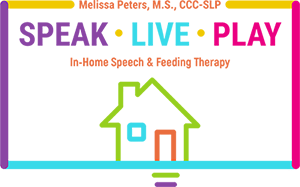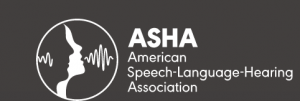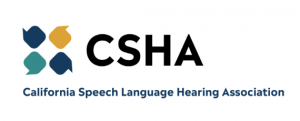ALS and Speech Therapy
One of the inevitable consequences of ALS is changes in speech. Speech suffers significantly as a direct result of the atrophying of oral, vocal, and lung muscles. It is advisable to commence speech therapy as soon as you detect changes in speech or voice because proactivity improves your chances of maintaining optimal communication as the condition progresses.
The speech-language pathologists (SLPs) at Speak Live Play are well-versed in various therapies and assistive technologies that ensure ALS patients retain their ability to communicate effectively as the illness progresses.
What is ALS?
ALS stands for Amyotrophic Lateral Sclerosis. It is also known as Lou Gehrig’s disease. It is considered the most common form of adult-onset motor neuron disease (MND), and is both idiopathic (caused by unknown factors) and progressive (becomes more severe with time). Unfortunately, there is no known cure for the disease.
A progressive loss and degeneration of motor neurons characterizes ALS. It affects upper motor neurons (nerve cells in the brain) and lower motor neurons (nerve cells in the spinal cord). Motor neurons are nerve cells that send impulses to muscles.
They allow us to walk, talk, sit, stand, swallow, and breathe. When these nerve cells die off, the corresponding muscles don’t receive any impulses. As a result of the chronic inactivity, they begin to waste away, leading to general muscle weakness, fasciculations, and atrophy.
Speech and Swallowing Changes in ALS
ALS affects both your ability to speak and swallow, especially if it involves motor neurons in the bulbar region of the brain. This is the part of the brain that controls the movement of the lips, soft palate, tongue, jaw, and vocal folds. The loss of bulbar nerves leads to the weakening and tightening of the muscles involved. This causes dysarthria—the slow, slurred, breathy or hoarse speech exhibited by a person with ALS.
Speech changes caused by ALS may include:
- Slurred speaking
- Difficulty articulating words
- Difficulty projecting the voice
- Tiredness and fatigue after speaking for long periods
- Shortness of breath while speaking
ALS may also lead to difficulty swallowing. Though it may seem simple and automatic, the process of swallowing involves several nerves and muscles that must work together simultaneously to move food and secretions down the gullet. It is often the case that speech problems are accompanied by dysphagia, which is the clinical term for dysfunctional swallowing.
One in four ALS patients requires clinical treatments for sialorrhea (drooling), which may come in the form of drugs that keep the mouth dry, home remedies like correct positioning, and portable suction devices such as those used in dental practices.
Timely speech therapy can help ALS patients retain their ability to communicate even as their ability to speak deteriorates. It is advisable to consult a speech-language pathologist as soon as possible, even prior to the speech changes caused by ALS. Speech therapy, at this stage, can be invaluable and will contribute greatly to the patient’s ability to communicate down the line.
How Speech Therapy Can Help
The main aim of ALS speech therapy is to improve communication. SLPs at Speak Live Play are familiar with the progressive nature of ALS, so they recommend therapies that can be adjusted at various stages of the illness. This allows patients to retain effective communication abilities as the condition progresses.
Before such measures can be deployed, there are a number of necessary preliminary steps.
- Assessment of the patient’s speech rate
The speech therapist first measures the patient’s speech rate to establish baseline figures. These are important for estimating the appropriate timing for interventions and therapy adjustments. The figures also allow them to monitor how quickly the ALS progresses.
- Message and voice banking
Message banking involves recording expressions and phrases that the patient commonly uses. These range from words of affection (I love you) to quintessential expressions (Are you kidding me?) to repetitive phrases (How are you?). SLPs recommend message banking as a way to preserve each patient’s unique cadence and delivery.
Voice banking enables patients to have a custom synthesized voice derived from samples of their actual speech. It is important to participate in these preliminaries before the deterioration of bulbar nerves, which often means the loss of speech capabilities. Your SLP will recommend the best voice banking program based on how much it costs, how clear it makes your speech, and how time consuming it is.
Oral motor exercises are not necessary for rectifying speech changes. In fact, most SLPs don’t recommend it. Exercise can have a counter-intuitive effect on weakened muscles.
To preserve verbal communication, most SLPs recommend the following strategies instead:
- Lip reading: Communication partners are encouraged to face the patient’s face when speaking. Using facial cues and lip movements can greatly improve the listener’s understanding.
- Slower speech: Slowing down your words and exaggerating the articulations, particularly at the end of certain words, may help you sound out words better.
- Voice amplification: You may wear a lightweight, portable voice amplifier with a hands-free microphone if you struggle with vocal projection. This strategy is suitable for ALS patients who have fairly clear speech but not enough volume to communicate effectively.
- Portable suction machine: A suction machine may improve your speech if excess saliva is impeding your ability to speak clearly. Similarly, your SLP may recommend drying medication.
- Palatal lifts appliance: Some ALS patients may speak a bit too nasally to be properly understood. In such cases, a palatal lift appliance, which is non-invasively inserted to lift the soft palate, may dramatically improve speech quality.
- Hearing aids: A hearing aid can improve the listening and understanding capabilities of communication partners, particularly those affected by untreated hearing loss.
- Augmentative Alternative Communication (AAC) tools: When verbal communication is not possible, your SLP may recommend AAC tools. These are critical for non-verbal communication, which becomes a necessity during the later stages of ALS. The most common types of AAC tools are Text-To-Speech Apps, Speech Generating Devices, Low-Tech Communication Methods, and Alternative Access Methods.
Goals for ALS Treatment
The ultimate goal for ALS treatment is to enable effective communication regardless of how advanced the illness is. To achieve this, Speak live play SLPs first assess the patient’s communication needs depending on how severe the ALS is.
At all stages of the illness, nevertheless, various treatments can be deployed to improve communication.
Before Speech Changes
At this stage, the primary goal is to prepare for the onset of speech changes. Your SLP may administer treatment with the following goals in focus:
- The preservation of your unique speaking voice.
- The preservation of aspects of your speech, including cadence, unique phrases, and repetitive words.
- The anticipation of slurred speech via practices like speaking more slowly and exaggerating the articulation of words.
During Significant Speech Changes
When speech changes begin to challenge effective communication, treatment is administered with the following goals in mind:
- To improve understanding by incorporating facial cues and lipreading to enhance verbal communication.
- To minimize fatigue during communication through effective planning of interactions and periodic breaks.
- To enhance speech quality by promoting interactions in environments that are well-lit and quiet.
- To teach communication partners how to understand patients with ALS through methods like repeating what the patient says.
- To teach ALS patients effective communication strategies like speaking during mealtimes, using turn-taking gestures, and calling attention to shifts in topic for better context comprehension.
When Verbal Speech is Impossible
When speech becomes insufficient, your SLP will recommend treatment with the following goals in mind:
- To facilitate non-verbal communication via Speech Generating Devices or Low-Tech Communication tools.
- To provide emergency communication devices for when the patient is home alone.
- To allow the ALS patient to contact people inside or outside the house at will.
- To enable rapid communication whether the patient is talking to loved ones or strangers.
Why Speak Live Play?
Dealing with ALS patients will often require specialized attention, which is why Speak Live Play is the perfect solution for situations that call for in-home speech therapy, speech therapy for kids and adults, and even speech teletherapy (therapy over the phone).
With highly qualified SLPs who are familiar with ALS at your disposal, Speak Live Play caters to all your speech therapy needs on your own terms, no matter how special your case is. Contact us to speak now and start your journey to effective ALS management today.



